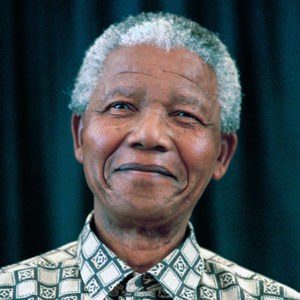Ubuntu is a South African word from the Nguni people that encapsulates humanity. ‘Ubuntu ngumuntu ngabuntu’ can be translated as ‘I am what I am because you are what you are’. Or more simply, ‘we are people through other people.’ Ubuntu provides a view of humanity as intertwined. Under Ubuntu, we are all interconnected and our choices have an impact on others. To me, this makes a lot of sense, as I see humans primarily as social beings. As humans, we need other humans to live and to thrive.
Ubuntu and post-apartheid South Africa
Nelson Mandela is known for using Ubuntu as his guiding mission and basis for public policy. He dedicated his life to fighting for the freedom of his fellow black South Africans against the institution of apartheid. Mandela insisted on South Africans setting aside their differences and emotions in the search for reconciliation. In doing so, he left the world with a legacy of love and collective good.
In Africa, there is a concept known as ‘Ubuntu’ – the profound sense that we are human only through the humanity of others; that if we are to accomplish anything in this world it will in equal measure be due to the work and achievement of others.
Nelson Mandela

The collective good versus individualism
Ubuntu is a daily challenge to live better with each other. However, it seems incompatible with the individualism that rules in Western culture today. In more individualistic societies, people tend to value personal success over group achievement. We also prioritise the pursuit of personal happiness.
If the importance of Ubuntu was not clear during post-apartheid South Africa, it is certainly clear after the global coronavirus pandemic. On the one hand, we are more physically estranged from our fellow human beings due to the need to social distance. On the other hand, our actions are even more intertwined.
I’ve personally struggled with the minimal in-person human contact I’ve had since March with friends, family, and colleagues. The extroverted side of me craves the energy I get from being around people. However, I recognise that my movements could have consequences for others due to the threat of coronavirus. The balance between self-interest and the collective good is a fine line to tread.
It can be difficult not to internalise these individualistic values when it’s culturally embedded into society. Even institutions that have intentions to provide for collective good cannot escape. Just look at the state of partisan politics in the UK. There is so much political infighting and defending of personal party interests, which provides minimal benefit for the people the politicians are meant to serve.
However, when the stakes are high enough, I believe that people will act to preserve our shared humanity. Without some notion of the collective good, we wouldn’t have any blood or organ donors, a social security system, or the not-for-profit sector. Ubuntu is about coming together with mutual respect, regardless of our differences and individual interests.
Taking Ubuntu forward
A society with Ubuntu at its core is a society where the success of society is considered above the success of the individual.
You can’t be human all by yourself and when you have this quality – Ubuntu – you are known for your generosity. We think of ourselves far too frequently as just individuals, separated from one another, whereas you are connected and what you do affects the whole world. When you do well, it spreads out; it is for the whole of humanity.
Archbishop Desmond Tutu
As our value as people is tied up in the value of other people, it is rational to think about others when making decisions. This can co-exist with self-interest as benefits to other people will reap benefits to ourselves. Can you imagine the impact if our global philosophy followed Ubuntu more closely? It would be unprecedented, in a good way.
